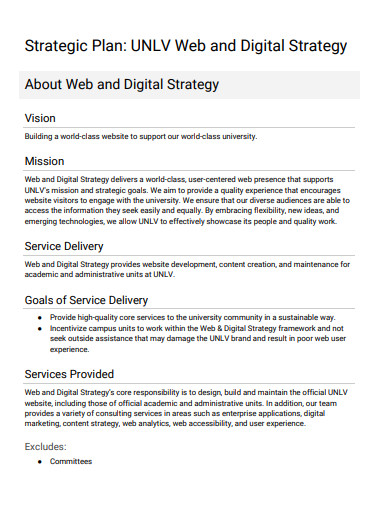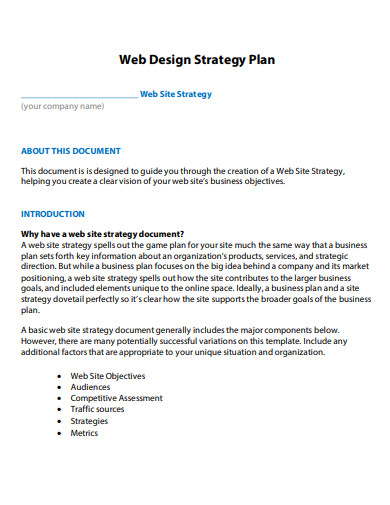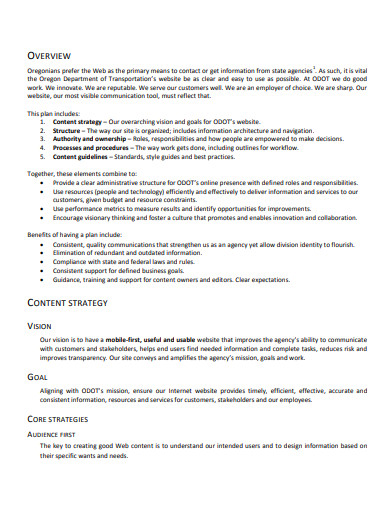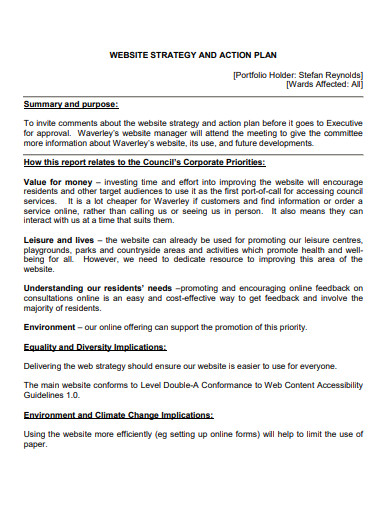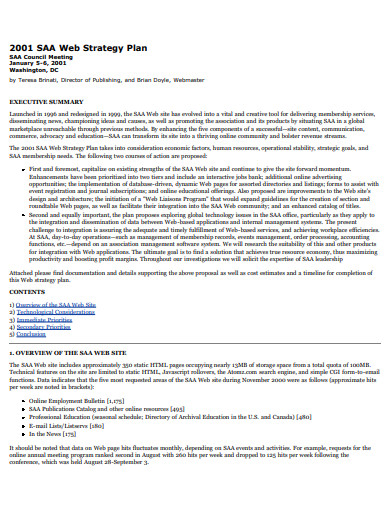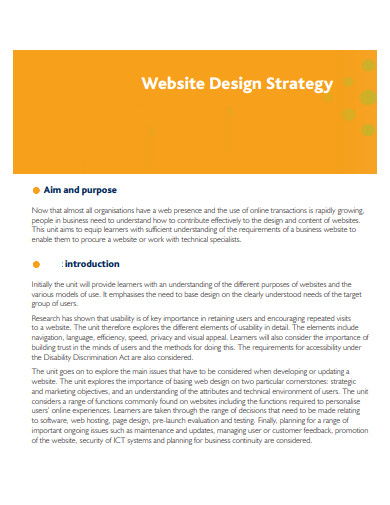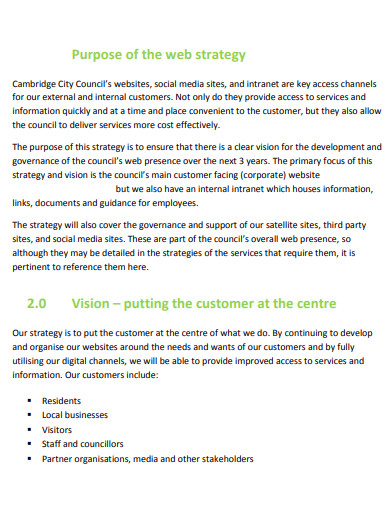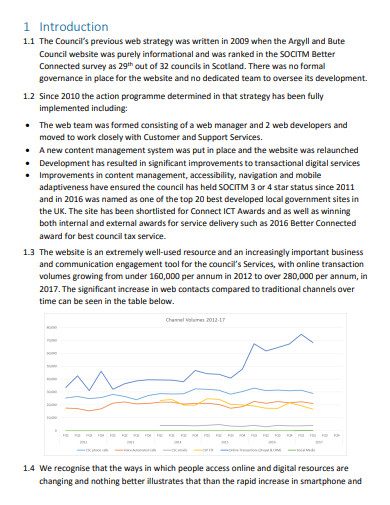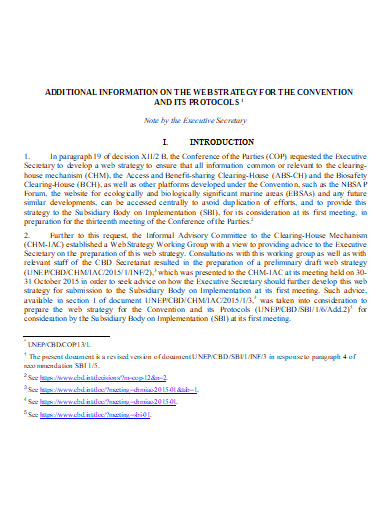Every company should put money into developing a solid website strategy. The significance of having a great website for your organization and/or brand cannot be overstated. Perception is a reality in marketing. A brand’s online presence should not be flat and static, communicating only in one direction without segmentation. I’ve seen a lot of companies that don’t have a website or have a bad website, even if they have thousands of employees and make hundreds of millions of dollars in revenue! Your digital marketing efforts are anchored by a website. As a result, when I meet with a potential client, one of the first things I do is evaluate their website.
10+ Website Strategy Plan Samples
As an independent professional, your primary goals are to find and complete projects that require your expertise and skills. You are, however, a business owner regardless of your field or industry. This means you’re in charge of not only managing and running a business but also marketing your services to attract new customers. While networking and referrals are beneficial, having a website can help to raise brand awareness, establish credibility, promote skills, and generate new leads. Yes, it is simple to create an out-of-the-box website and add some text and images to a few pages, but if you want to see real results, you must first develop a strategy.
1. Website Strategy Plan
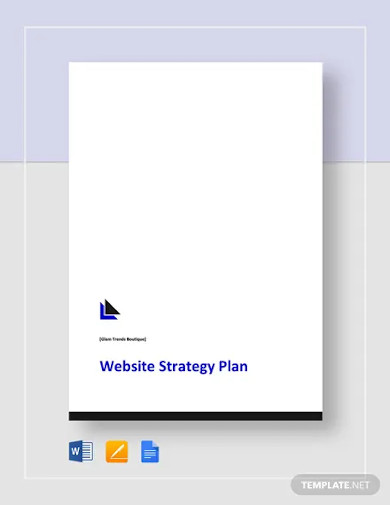
2. Sample Website Strategy Plan
3. Web Design Strategy Plan
4. Website Content Strategy Plan
5. Website Content Strategic Action Plan
6. Simple Website Strategy Plan
7. Website Strategy Plan Example
8. Website Strategy and Marketing Plan
9. Basic Website Strategy Plan
10. Professional Website Strategy Plan
11. Printable Website Strategy Plan
Developing a Website Strategy
- Set goals for your website – Set some goals before you start building your website. What are your goals for your website? Consider the areas of your business where you are successful, where you are lacking, and what you want this marketing tool to accomplish for you. Consider the following:
– Do you require lead generation?
– Do you need to establish trustworthiness?
– Do you need to prove your abilities and achievements?
– Do you want to become a thought leader in your field?Your goals will help you decide what kind of content to put on your website and how to measure its effectiveness over time. - Create a website that will achieve the goals – You can decide what kind of content to put on your website once you have a clear set of objectives. Create content that sells your skillset, includes calls to action, and includes forms so contacts can contact you, for example, if you’re looking to generate new leads. Create content that promotes your expertise, such as blog posts, white papers, or guides, if you want to be a thought leader. Keep in mind that the type of content you create will be determined by your objectives.
- Know your audience – Put the shoe on the other foot and consider your audience’s expectations while brainstorming content ideas. Consider yourself to be the ideal visitor to your website. What do you think you’ll find? What would you like to know? What kind of information would you find useful? A website is more than just a list of achievements. Visitors will leave if your content does not pique their interest in a short period. Take the time to create content with messaging that speaks directly to your audience’s needs.
- Promote your value – Standing out from competitors in your industry requires clearly articulating your value—what you bring to the table that no one else can. What do you want a potential or current client to learn about you when they visit your website? What abilities have aided you in winning projects? What distinguishes you from the competition? How have you aided your customers? When highlighting your accomplishments, keep it brief and use bullet points so that your visitors can quickly and easily absorb the information.
- Track your goals and measure your progress – A website isn’t something you can just put up and forget about. Develop a strategy to track your progress to achieve your objectives. Consider the factors that you consider to be indicators of success. The number of completed contact forms, the number of visitors you receive, the number of time visitors spend on your site, and the number of pages they view are all examples of these metrics.
FAQs
How do you define your target customers?
Taking the time to define your audience segments across your various business lines using qualitative and quantitative data will aid you in defining your digital marketing strategy in terms of targeting efforts, particularly when creating profiles to target via advertising. The creation of buyer personas is a critical first step in any online marketing campaign, as it allows you to tailor your marketing programs to each potential customer segment.
What is website strategy?
A website strategy is a long-term strategic plan for establishing and growing a company’s online presence.
Every business requires a well-thought-out website strategy. Your goals and objectives will most likely change as your company’s needs change. Create a website strategy that outlines everything you want your business website to achieve, and track its effectiveness on a regular basis.
Related Posts
Sample Excuse Letter for School
Feature Writing Samples
FREE 14+ Sample Music Concert Proposal Templates in MS Word | Google Docs | Pages | PDF
FREE 10+ Security Guard Contract Samples in PDF | MS Word
FREE 10+ Assurance Agreement Samples In MS Word | Google Docs | Apple Pages | PDF
FREE 10+ Option to Purchase Agreement Samples in MS Word | Apple Pages | PDF
FREE 26+ Curriculum Form Samples in MS Word | PDF
FREE 20+ Cleaning Service Proposal Samples in PDF | MS Word
FREE 29+ Sample Loan Application Form Templates in MS Word | PDF
FREE 10+ Event Venue Contract Samples in PDF | MS Word | Pages | Google Docs
FREE 10+ SBAR Samples in PDF | DOC
FREE 12+ Music Band Contract Templates in PDF | MS Word
FREE 10+ HVAC Maintenance Contract Samples in PDF | MS Word
FREE 10+ Social Media Marketing Contract Samples in MS Word | PDF
FREE 10+ Wholesale Assignment Contract Samples in PDF

